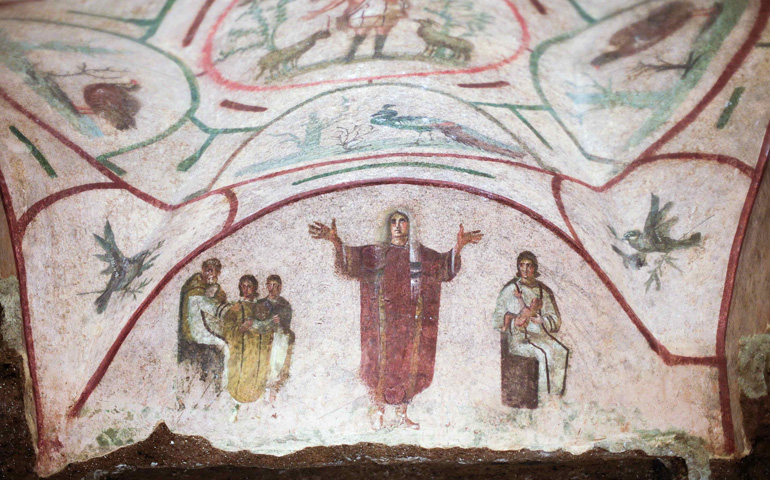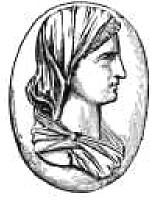The Marcionite Church is proud to announce the recent reconstruction of the lost Marcionite Book of Psalms, also known as the Psalmicon.
Psalmicon derives from the Greek psalmos (“song of praise”) fused with the book-title ending -ikon, whose κ (kappa) becomes c in Latin, yielding -icon and signifying “the psalm book.”
The Psalmicon is a Marcionite Christian collection of forty psalms, reconstructed from historical references and early church writings. Dating its final composition to around 125 C.E., it is considered the earliest Christian hymnbook.
Pliny the Younger, governing the province of Bithynia-Pontus in the early second century, describes local Christians as assembling before dawn and singing antiphonally; he reports that they were accustomed to sing “carmen Christo quasi deo” (“a hymn to Christ as to a god”). (Pliny the Younger, Epistles 10.96)
Historical Mentions and Theories
The Muratorian Fragment refers to a rejected book of psalms associated with Marcion, and Maruthas of Martyropolis similarly noted the existence of Marcionite psalms:
“…instead of the Psalms, they [the Marcionites] have made themselves hymns for their services.”
Some scholars and even the Catholic Church have theorized that the Odes of Solomon, an apocryphal collection of hymns, were originally the Marcionite psalms. These hymns, composed in Greek by Marcion and his followers, may have later been expanded and interpolated—much like how the Evangelicon evolved into the Gospel of Luke. The psalms may also have been used contemporaneously by Gnostic sects, including the Valentinians.
Many scholars believe these psalms were composed by a disciple of the Apostle John—of whom Marcion of Sinope was one.
Connection to the Descent into Hell
Church Fathers such as Tertullian, Irenaeus, and Epiphanius all recorded that Marcion taught a doctrine of Christ’s Descent into Hell (also known as the Harrowing of Hell) following the Crucifixion. While this narrative is absent from the Evangelicon, it is directly and indirectly referenced in several psalms within the Psalmicon.
Alterations and Misattributions
It appears that when Lactantius translated these psalms into Latin, he inserted an additional psalm emphasizing the Virgin Birth—an idea absent from Marcionite theology. Later, when the psalms were translated into Syriac, they were further adapted to align with the prevailing orthodoxy, taking on a more Judaized tone, including the use of ‘Hallelujahs‘ to conclude each psalm.
At some point, these Marcionite psalms were renamed the Odes of Solomon to erroneously link them to the Hebrew Bible and King Solomon, despite their distinct Christian overtones.
Historically, they were referred to as psalmoi idiotikoi—a term meaning “private psalms” or “psalms not belonging to the canon of Scripture,” suggesting that they were not considered the direct product of divine inspiration. Some scholars believe they may have originated as a collection of baptismal hymns.
Liturgical Practices and Suppression
Tertullian also described a Marcionite tradition of giving newly baptized Christians a mixture of milk and honey. One of the psalms within the Psalmicon explicitly references this ritual.
However, at the Council of Laodicea in 360 C.E., it was decreed that no psalms composed by uninspired men should be used in church services. As a result, these compositions were formally excluded despite their growing popularity.
The Psalmicon in the Testamentum
The Marcionite Church does not consider these psalms divinely inspired or part of the official canon. However, they are recognized as a holy tradition and valuable for liturgical purposes.
Moving forward, the Psalmicon will be included in all future editions of the Testamentum.
You can view the Psalmicon here.
Our reconstruction of the Psalmicon is based on the work of James H. Charlesworth (The Earliest Christian Hymnbook: The Odes of Solomon, 2009).



